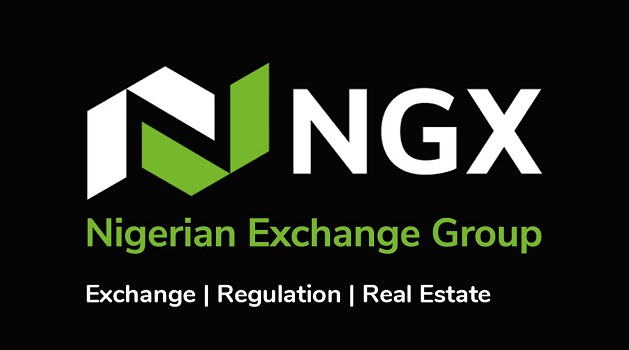News
Experts Fret over Cyber-Security, List Areas of Focus

Cyber security experts have articulated areas of focus for organizations and government agencies in their efforts to protect their networks against cyber- attacks this year, as the country awaits the signing into law of the cyber security bill recently passed by the National Assembly.
Oluseyi Akindeinde, chief technical officer, Digital Encode, urged government to set up cyber security operating centres that will protect national critical infrastructure networks.
According to him, the centres will serve as surveillance system that will monitor activities on the networks of tier 2 internet service providers that bring internet into the country including; undersea cable infrastructure and satellite networks as well as the country’s top level domain name the .ng network.
“This has become necessary in view of the recent cyber-attack of Sony network in USA. We also need to train people that will work in these centres to ensure it achieves the desired result,” he noted.
He added that organizations such as banks and telecom operators among others also need to establish their cyber security operating centre that will monitor their networks against hackers as well as electronic fraud he describe as internal collision to commit fraud in those organizations.
Tobechi Ndubuaku, chief operating officer, Tobeit Consulting, organizers of annual Hackcess conference, advises organizations to fortify their networks with cyber security software that gives them the required protection.
“There are some networks that have the kind of ‘Buffer’ against hacking. In some network they are exposed to hackers for not been strong, there is need for such organizations to build their infrastructure with the right security network against hacking. This is not something you build and you relax, you will need to keep updating the software, the end-point of this is to be five steps ahead of hackers,” he stated.
Ndubuaku also stressed the need to encourage security conferences in the country, according to him it is in such conferences that directions of activities of hackers are exposed and ways to address it are proffered.
He applauded the passage of national cybercrime bill 2014, noting that when it is signed into law it will empower EFCC to effectively prosecute cybercrime in the country.
Chris Uwaje, former president, Institute Software Practitioners of Nigeria (ISPON) and advocate of cyber security had warned that cyber terrorism is real and must be taken serious.
Uwaje called for the setting up of “ethical hackers” to protect networks by hacking and stealing vital information and later returning them to show their vulnerability.
News
ARCON to Tackle Digital, Recommits to Ethical Standards

Advertising Regulatory Council of Nigeria (ARCON) has declared its full readiness to confront emerging challenges in the country’s dynamic advertising landscape—particularly those arising from digital media proliferation and unregulated content distribution.

Speaking at the 2025 Advertising Standards Panel (ASP) Stakeholders Forum held recently in Lagos, Dr. Olalekan Fadolapo, director general, ARCON, reaffirmed the council’s commitment to upholding ethical advertising standards and protecting public interest, especially in an era where virtually everyone has become a content creator.
“The digital economy has become massive, and the boundaries are no longer defined by geography. Ensuring compliance in this space is one of our greatest regulatory hurdles,” he said.
Responding to criticisms that ARCON and the ASP may be stifling creativity, Fadolapo insisted that regulation does not equate to censorship but rather ensures alignment with national values and cultural sensitivities.
“Creativity is vast and fluid, but it must be exercised within the limits of the law and ethical standards. We won’t allow so-called creativity to ignite social unrest or breach advertising codes,” he noted, citing examples where ads had violated laws under the guise of creative license.
Earlier in his presentation, Dr. Emmanuel Agu, chairman of the Advertising Standards Panel (ASP), Nigeria’s statutory body for advertisement vetting and regulatory compliance, reaffirmed the panel’s commitment to upholding ethical advertising standards and protecting public interest, especially in an era where virtually everyone has become a content creator.
“The Panel is aware of the challenges that confront it and is taking deliberate steps to address them,” Dr. Agu said. “We are not oblivious to the current advertising realities, including the increasing volume of digital content and the corresponding need for rapid vetting processes.”
Dr. Agu acknowledged that the digital boom and content decentralization have complicated ASP’s regulatory mandate, with social media platforms now flooded with promotional materials that often evade proper scrutiny.
He warned that misleading product claims, unverified influencer content, and the inappropriate use of minors in advertising are among the most pressing concerns currently facing the panel.
“We’ve observed an increase in digital content disguised as entertainment that essentially functions as unvetted advertising. This undermines consumer trust and can negatively affect public morality,” he stated.
Dr. Agu was unequivocal in stressing that all promotional content, regardless of format or platform, must be vetted by ASP before public exposure.
News
NGX Group Chairman Seeks Regional Collaboration to Unlock West Africa’s Trade, Investment Potential

Umaru Kwairanga, chairman, Nigerian Exchange Group (NGX Group), has called for stronger regional cooperation to harness the untapped potential of West Africa’s trade and commodity markets.

Speaking at the inaugural West Africa Economic Summit (WAES) 2025 held under the theme “Unlocking Trade and Investment Opportunities in the Region”, Kwairanga highlighted the critical role of capital markets and commodity exchanges in transforming the region’s abundant natural resources into organised, transparent capital that fuels industrialisation and inclusive economic growth.
The summit brought together key stakeholders from across West Africa to deliberate on strategies for accelerating regional integration, strengthening capital markets, and unlocking the full potential of intra-African trade.
In his remarks during a high-level panel on “Commodities as Capital: Regional Commodities Exchange & Reserves”, Kwairanga noted that despite West Africa’s wealth of raw materials, the region continues to face a paradox of resource abundance coexisting with capital scarcity.
“As a nation and region, we are abundantly rich in raw materials, but often poor in capital outcomes. This paradox is not due to a lack of resources, but due to the way these resources have historically been excluded from structured financial ecosystems.
Commodities, whether agricultural, mineral, or energy, must be seen not just as tradeable goods, but as investable assets capable of powering industrialisation, job creation, and macroeconomic stability,” he said.
Kwairanga emphasised NGX Group’s commitment to building resilient market infrastructure that supports price discovery, clearing, settlement, and investor protection, systems that can underpin thriving regional commodity markets.
He highlighted NGX Group’s role in mobilising capital for commodity value chains through IPOs, bonds, and structured funds, citing the success of NGX-listed companies like Presco and Okomu Oil as models for attracting long-term investment.
On the question of regional versus national commodity exchanges, Dr. Kwairanga advocated for a dual approach that combines the strengths of national platforms with the scale and integration benefits of regional frameworks.
“National exchanges address local needs and build depth, but for West Africa to unlock the full potential of commodity trade, we must connect these markets under a regional structure.
“Regulatory harmonisation will be key, and this is where NGX Group’s experience in governance, coupled with platforms like the African Exchanges Linkage Project and the Pan-African Payment and Settlement System, can help align standards and enable seamless cross-border transactions,” he stated.
Addressing liquidity challenges, Kwairanga outlined the need for harmonised rules, trustworthy infrastructure, product innovation, and incentives to drive participation. He called for public-private partnerships and regional integration to deepen market liquidity and ensure efficient price discovery.
Beyond the panel discussions, Kwairanga commended the vision of President Bola Tinubu and the Minister of Foreign Affairs, Ambassador Yusuf Maitama Tuggar, for spearheading the summit. “There is power in unity and prestige in size. The great economic powerhouses of the 21st century, such as the United States and China, have risen to prominence partly because of the scale of their markets.
A united West Africa can achieve the same if we work together on initiatives like this,” he said, expressing optimism that the summit would produce actionable frameworks to reduce trade barriers, encourage regional investment, and fast-track economic growth across ECOWAS.
NGX Group, he added, remains committed to supporting cross-border investments, citing its participation in the African Exchanges Linkage Project and the increasing regional footprint of NGX-listed companies such as Dangote Cement, First Bank, Zenith Bank, Access Bank, and Ecobank.
News
DBN Awards N13m in Grants to Tech Startups

Development Bank of Nigeria (DBN) has awarded a total of N13 million in grants to three standout tech startups at the 2025 Techpreneur Summit held in Lagos, reinforcing its commitment to innovation and inclusive growth among Nigeria’s micro, small, and medium enterprises (MSMEs).

The winners include: BuyScrap, a digital marketplace for recyclable materials – N6 million; Qiqi Farms, which connects local farmers to hospitality and export markets – N4 million; Eco-Cyclers, a youth-led recycling initiative based in Enugu – N3 million
Alongside the grant awards, DBN also launched a new digital data asset, a first-of-its-kind platform aimed at enabling data-driven decisions within the MSME ecosystem.
The platform offers deep insights into business trends, sector-specific challenges, and growth opportunities—supporting smarter policymaking and targeted investments.
In his keynote address in Lagos, Tony Okpanachi, managing director/ CEO, DBN, described the event’s theme, “CTRL + SHIFT: Tech Empowered Movement for Naija,” as a strategic call to reimagine enterprise development in Nigeria.
“This isn’t just a keyboard shortcut,” he said. “It’s a mindset reset—powered by technology—to build a more inclusive, innovative, and resilient business landscape. From financing to innovation, DBN remains committed to enabling MSMEs to thrive.”
Okpanachi emphasized that the Summit aligns with DBN’s AMPLIFI Strategy, which integrates digital transformation, sustainability, and scalability into its core programs.
He highlighted initiatives such as the Digital Shift Workshops and the Eco-Innovation Challenge as key steps toward embedding innovation in Nigeria’s MSME sector.
Encouraging young innovators, he added: “The future belongs to those bold enough to imagine and build it. DBN is proud to support the ideas that will shape tomorrow.”
A major highlight was the unveiling of the DBN Data Asset—a digital platform designed to provide real-time, evidence-based insights into Nigeria’s MSME landscape.
The platform combines DBN’s proprietary data with external sources like the National Bureau of Statistics (NBS) to offer a comprehensive view of MSME performance by region and sector.
Jeremy Dan Okayi, DBN’s Head of Strategy, Policy & Innovation, described the platform as: “A reservoir of insight, potential, and direction—built on two years of collaboration and shared vision. This tool will support informed decision-making across the public and private sectors.”

 Telecom1 day ago
Telecom1 day agoMTN Says New N6.98 USSD Charge Won’t Affect Airtime Recharge

 Telecom1 day ago
Telecom1 day agoNnaemeka Ani Calls on African Techies to Rewrite the Narrative

 General News1 day ago
General News1 day agoStudy Reveals 7% of Industrial Organizations Tackle Vulnerabilities Only When Necessary

 E-Financial1 day ago
E-Financial1 day agoSofri Rejigs Digital Platforms for Better Customer Experience

 General News1 day ago
General News1 day agoNITDA, NCFRMI Forge Strategic Alliance for Inclusive Digital Transformation of Displaced Nigerians

 Telecom1 day ago
Telecom1 day agoCrypto Scam Unmasked: U.S. Recovers Record $225m in Global Fraud Bust

 E-Financial1 day ago
E-Financial1 day agoDLM Group Unveils Innovative Sovereign Bond Backed Composite Notes

 E-Financial1 day ago
E-Financial1 day agoFidelity MD,Onyeali-Ikpe Champions Lifelong Learning and Sisterhood for Women’s Career Growth


























